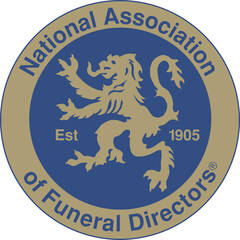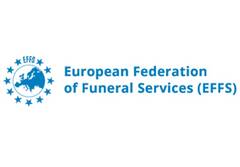What happens when somebody dies abroad?

It is something hopefully most of us will never have to worry about, but for some people, dealing with a death that occurs in another country is a very real and difficult situation. Homeland International is a subsidiary of CPJ Field and specialises in repatriating deceased people across the globe. Samuel Tester is Homeland International's case coordinator and we asked him a couple of questions about his profession.
What is international repatriation?
Simply put, international repatriation is the returning of a deceased person back to their native country. We are lucky as a society to be able to travel easily across the globe and unfortunately, sometimes death can occur when people are away from the country they reside in.
Is it a difficult process to get somebody who has died back home?
The circumstances differ from case to case and each country has its own regulations before they allow a body to leave or arrive in their country. Families often want the repatriation carried out right away, but there are a lot of checks and paperwork that need to be completed before we are able to move the deceased person. We are usually able to repatriate within a week of receiving the first call.
What happens immediately following that first call from a family?
We do work privately for families but most of the repatriations we complete are from insurance companies. After the first call, we will make contact with our agents in the countries in question to work out a quote for the entire repatriation. After that, provided the client is happy with the cost we get to work. We book flights and transfers, we make sure that we have all relevant documents, such as death certificates, and that they are signed and to hand to make sure we can complete the repatriation in a timely manner. Once we have completed the repatriation we transfer the deceased person over to a funeral director of the families choice.
What has been the most complex or unusual case that you’ve handled and why?
There are two complex cases I can recollect, and these were difficult for two reasons. The first case was for a Gentleman who passed away in Bangkok, Thailand. The deceased was from the Falkland Islands so this is where he was to be repatriated to. This was a complex case due to the logistics of the flights.
The repatriation out of Thailand was as quick and smooth as with any other case we frequently take care of from this part of the world, however, it was from this point on that due to the rarity of the route, flights were difficult to find. We booked a flight from Bangkok to Paris, and then from Paris to Santiago in Chile.
We were aware that there was only one flight a week from Santiago to Mount Pleasant Airport, Falkland Islands. This flight was every Saturday. It was at this point that we were informed the aircraft was far too small for us to use, and that we would have to look at another option. Our experienced team at our head office in the UK and also our colleagues in Chile ensured that all was taken care of immediately. So we formed a new plan.
This was now to fly on a domestic flight from Santiago to a town in southern Chile, Puntas Arenas. The airline was extremely helpful and booked the next flight to the Falkland Islands from here and from Santiago onwards it was a seamless transition, thanks to the airline and our Chilean agent.
The Second case was for a South African National who had passed away at a Gold Mine in Guinea. This was complex due to circumstances out of our hands. As it would in the UK, a Post Mortem was required and the hospital to do so was based in the capital, Conakry.
This meant we could not fly straight to South Africa once paperwork was obtained and now had to find one of two flights rather than just the one. The Gold Mine was the other side of Guinea and due to the heat, road transportation was undoubtedly not an option.
For safe transportation to Conakry, a private Aircraft was required and this was hard to find due to the urgent need of its assistance. Fortunately, we found a suitable aircraft and this was booked for transportation to Conakry Airport. Once we had arrived at Conakry hospital, a post mortem was carried out, the paperwork in the capital had been taken care of at the same time to speed up the process. Then a flight was booked to South Africa to complete the repatriation.
What’s the one biggest misunderstanding about repatriation that you’d like to clear up?
From our company’s perspective, I think there is one clear misconception about the role we play. Many clients, corporate and private alike, believe we only take care of repatriations to/from the UK. This is not the case at all, we carry out all repatriations regardless of global logistics.
What do you most enjoy about your job?
Helping to make a difficult time that little bit easier for our families makes my job so fulfilling. I really enjoy the challenge of working with our international colleagues; every case is different and the work we do can take us all over the globe. At the end of the day, knowing that I have helped to return a loved one back to their family is a reward in itself.





